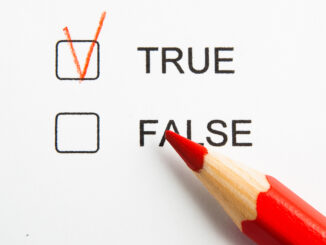With the support of gaming revenues, Washington State tribes are on the path to self-reliance. Along the way, we have become major contributors to the overall health and vitality of our state’s economy.
In aggregate, tribes contributed $6.6 billion in gross state product in 2020. Washington’s 29 tribal governments generate $1.5 billion in direct wages and benefits, and tribal economic activity accounts for a whopping $1.2 billion in state and local taxes. Tribes directly employ 37,371 people across the state, and 54,000 total jobs can be traced back to tribes. This makes Washington tribes, collectively, the state’s seventh largest employer. Of those jobs, 72 percent are held by non-tribal members.
Tribes’ business activities fund critically needed government services for some of the most historically marginalized communities in Washington State. As the numbers listed above suggest, the benefits of those activities don’t just go to tribes or tribal members; they boost our overall state economy and provide value to all Washingtonians.
Tribal Economic Activity is Growing in Washington
It’s also worth noting the dramatic growth of tribal economic activity. An earlier 2004 analysis of tribal economic contributions in Washington, also conducted on behalf of WIGA, found that the tribal economic impact at the time was $2 billion, and tribes then directly employed about 13,000 people.
Tribes run gaming and other business activities not to generate private profits but to fund critically needed government services for some of the poorest and most historically marginalized communities in Washington State. Our commitment to responsible gaming activities, along with a diverse array of economic development efforts led by tribes, is both restoring tribal self-reliance and boosting our overall state economy.
Tribal economies fund schools, housing programs, health clinics, environmental rehabilitation, infrastructure development, firefighting, law enforcement, and other public services that create benefits that extend far beyond the borders of tribal reservations. Tribal economic development is about more than tribal government gaming; tribal businesses encompass a wide variety of enterprises, including retail, entertainment, food production, and other activities.
Threats to These Economic Benefits
It’s taken 30-plus years of effort to get to this point. Now, just as tribes are increasing their importance to Washington’s economy, a lawsuit from a major cardroom operator – currently before a federal appeal after being dismissed by a lower court – puts all this economic benefit at risk. In an effort to overturn Washington State’s carefully established system of limited and regulated gaming, Maverick Gaming’s suit seeks to put sports betting and other forms of easily accessible gambling in neighborhood card rooms across the state.
By asking that all of our tribal gaming compacts – carefully negotiated over the decades between sovereign tribes and the State of Washington and approved by the federal government – the Maverick suit would also upend the foundational federal Indian Gaming Regulatory Act, causing irreparable harm to tribes and state economies across the country. It must be defeated.
Washington State’s tribes are united in opposing this attempt to undermine what we have worked so hard to build. We are proud of the gains we have made in building our tribal economies and of our growing contribution to the state’s economic strength. Everyone in Washington benefits from the economic resurgence of Indian Country, and, once this threat to our sovereignty is defeated, will continue to do so for years to come.
For more information: https://www.washingtonindiangaming.org/



